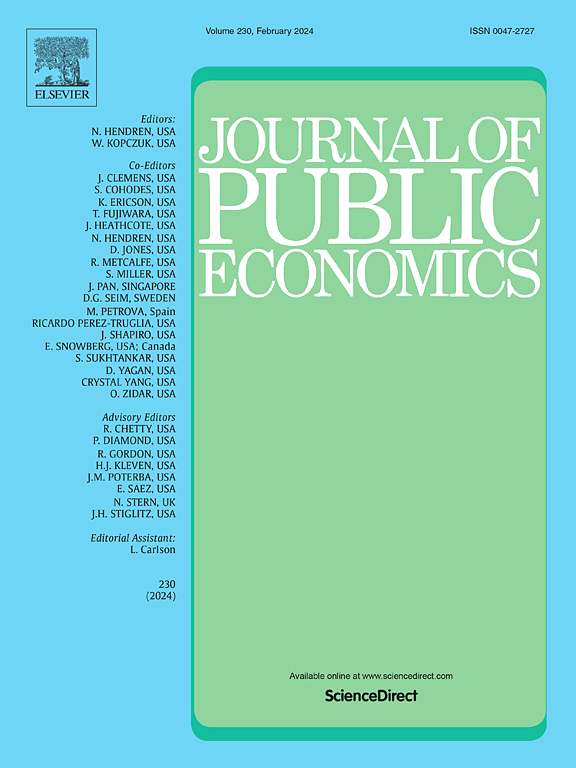Policy-advising competition and endogenous lobbies
IF 4.8
1区 经济学
Q1 ECONOMICS
引用次数: 0
Abstract
We investigate Bertrand competition between experts in a policy-advising market. A policy-maker can either hire one of the experts or take the policy decision himself. The experts differ in policy competence and preferences and may either charge a fee or offer lobbying contributions. In equilibrium, the hired expert charges a fee if she has high policy competence and policy preferences are roughly aligned. Otherwise, the expert pays contributions—and thus acts as a lobbyist instead of as an advisor. Comparative statics show that more intense competition may even cause an expert previously hired at a positive price to engage in lobbying. Finally, we apply the model to competition between experts with different motives, reflecting the current debate about the role of professional consultants in advising governments. We show that the presence of able consultants may decrease social welfare if the policy issue is narrow and mainly concerns the policy-maker’s own voters. Our results give rise to alternative explanations for the empirical puzzle of why there is so little money in politics.
政策咨询竞争和内生游说
我们研究了政策咨询市场中专家之间的Bertrand竞争。政策制定者可以聘请其中一位专家,也可以自己做出政策决定。这些专家在政策能力和偏好上各不相同,可能收取费用,也可能提供游说捐款。在均衡状态下,如果聘请的专家具有较高的政策能力,并且政策偏好大致一致,那么她就会收取费用。否则,专家就得付一定的费用——这样就成了说客而不是顾问。比较统计数据显示,更激烈的竞争甚至可能导致先前以积极价格聘用的专家参与游说。最后,我们将该模型应用于具有不同动机的专家之间的竞争,反映了当前关于专业顾问在向政府提供建议方面的作用的辩论。我们表明,如果政策问题是狭窄的,主要涉及决策者自己的选民,那么有能力的顾问的存在可能会减少社会福利。我们的研究结果为“为什么政治上的钱这么少”这一实证难题提供了不同的解释。
本文章由计算机程序翻译,如有差异,请以英文原文为准。
求助全文
约1分钟内获得全文
求助全文
来源期刊

Journal of Public Economics
ECONOMICS-
CiteScore
14.10
自引率
2.00%
发文量
139
审稿时长
70 days
期刊介绍:
The Journal of Public Economics aims to promote original scientific research in the field of public economics, focusing on the utilization of contemporary economic theory and quantitative analysis methodologies. It serves as a platform for the international scholarly community to engage in discussions on public policy matters.
 求助内容:
求助内容: 应助结果提醒方式:
应助结果提醒方式:


